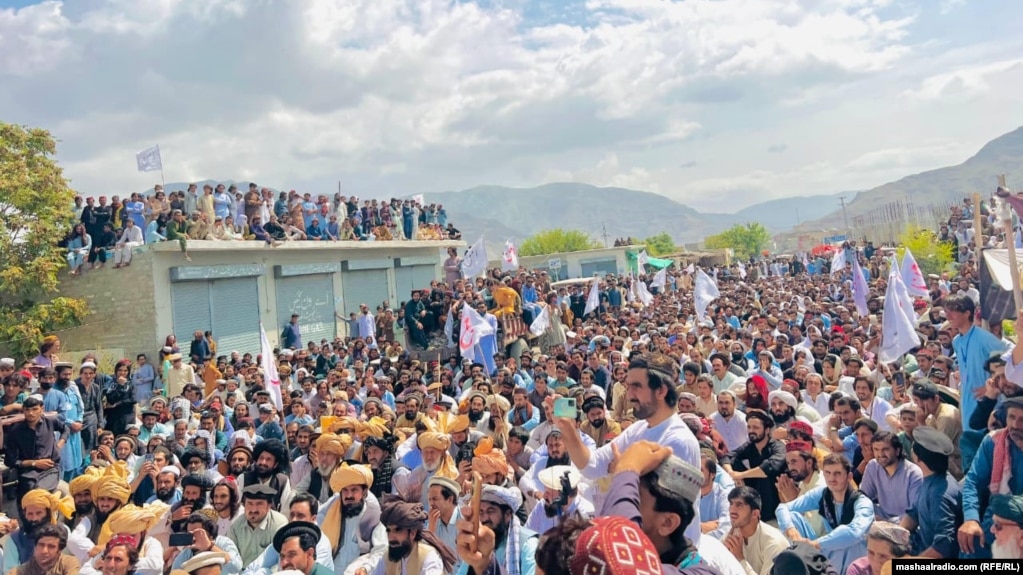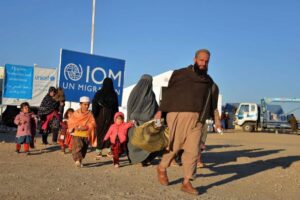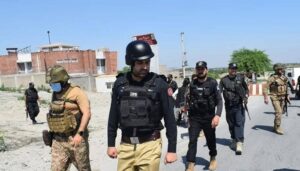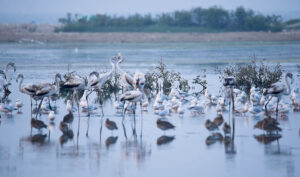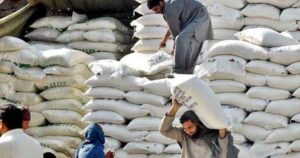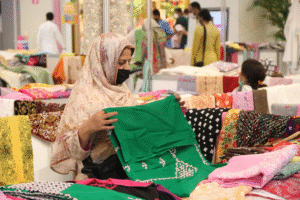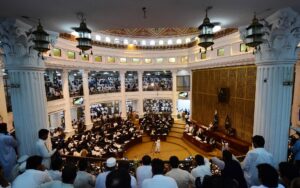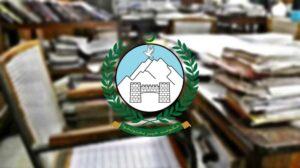PESHAWAR – The protest against insecurity in South Waziristan has entered its second week, as hundreds of residents, politicians, and tribal elders continue to occupy Wana Bypass Road, demanding an end to violence and the reopening of the Angoor Adda border crossing.
This is no ordinary sit-in. Organised under the banner of the United Political Peace Movement, the demonstration has grown into a quiet but powerful act of defiance against a system that locals say has failed to protect them. Shaded beneath tents and tarps, the protesters sit in a semi-circle, men with weathered faces and calloused hands, students with weary eyes, all united by the same plea: peace.
Also Read: Day-Long Curfew in Lower South Waziristan Amid Protests for Peace in Waziristan and Tirah
“Every day, we bury someone,” says Ayaz Wazir, one of the protest leaders. “This isn’t politics — it’s about survival. We are being hunted in our own homeland.”
South Waziristan has long stood at the intersection of militancy, military operations, and displacement. But locals now say the threat is less visible and more insidious: extortion by armed groups, daily targeted killings, and a government that seems reluctant to respond.
The closure of Angoor Adda, a vital border trade point connecting South Waziristan with Afghanistan’s Paktika province, has only added to the despair. “For two years, this road has been closed,” laments Hamza Wazir, a tribal elder from Shakai. “Thousands have lost their livelihoods. Business has died. People are starving.”
Also Read: South Waziristan Operation Kills 11 India-Backed Militants; Major Among Two Soldiers Martyred
Despite promises from the local administration in March to reopen the route, the crossing remains shut. Deputy Commissioner Muhammad Nasir Khan has confirmed that preparations are complete on the Pakistani side, but that they are still awaiting coordination from the Taliban authorities across the border.
In November 2023, residents staged a similar protest, calling on the government to remove passport and visa requirements that they say restrict traditional cross-border movement and trade.
Meanwhile, the provincial government claims it remains committed to security. On 13 July, spokesperson Barrister Muhammad Ali Saif stated during a press conference that the government continues to act against armed groups but remains open to dialogue through jirgas.
However, for many in Lower South Waziristan, words and statements offer little comfort. “Security operations happen, yes,” says Ayaz Wazir, “but the fear remains. The killings don’t stop.”
Also Read: Security Crisis in KP Deepens as Militants Abduct Soldiers, Official
Local traders claim losses in the billions of rupees, with thousands rendered jobless due to the continued closure of trade routes and deteriorating law and order.
In tribal districts, similar frustrations are boiling over. In tribal districts like Upper and Lower South Waziristan, Khyber and Bajaur protests have become almost routine, loud reminders that the promise of peace remains unfulfilled.
Back at the sit-in, children play near placards that read “Secure Waziristan” and “Open Angoor Adda.” Tea is served, speeches delivered, but the tone is one of exhausted determination. “This protest against insecurity in South Waziristan,” Ayaz Wazir says, “will not end until someone listens.”
And so, they wait.

